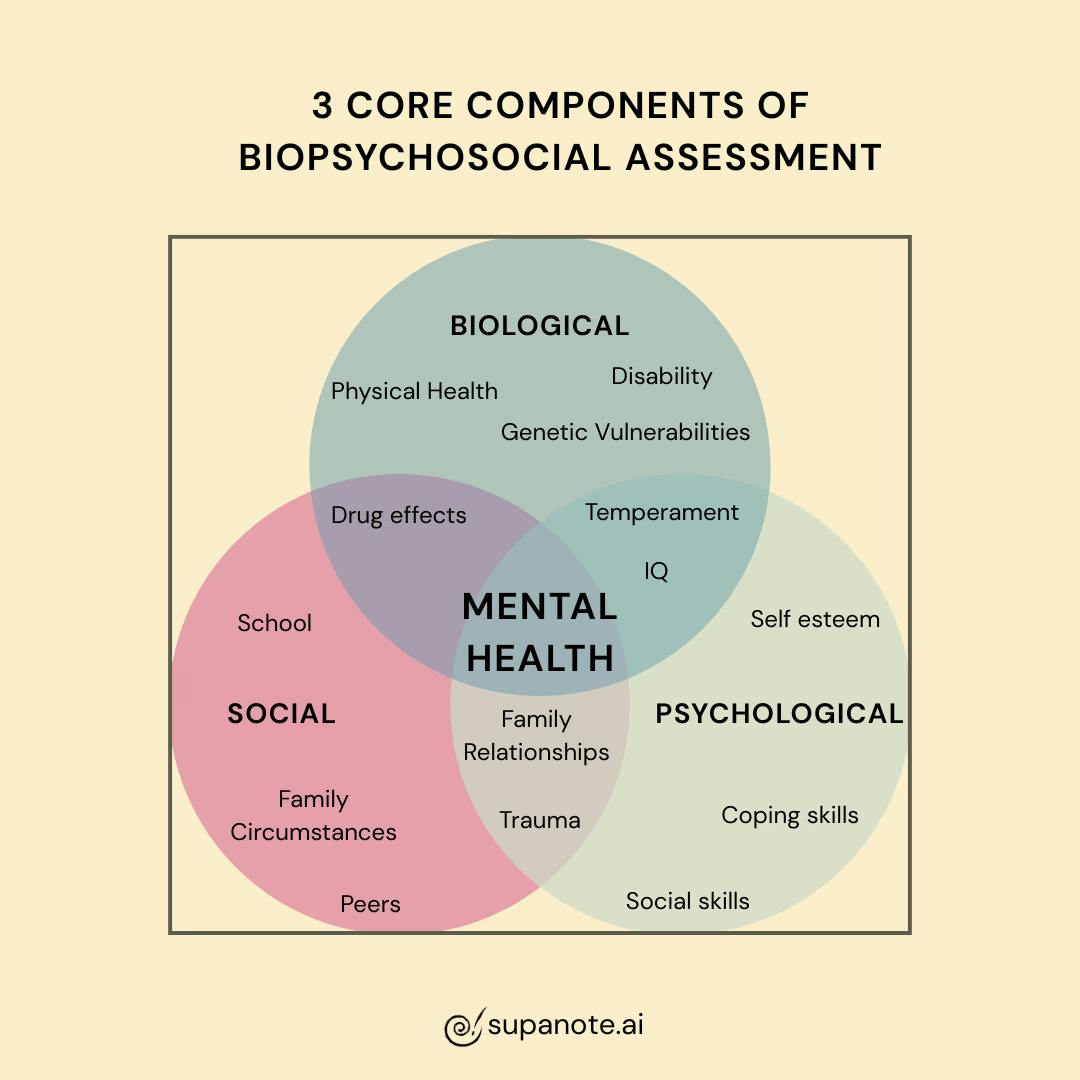Understanding the Components: Bio, Psycho, and Social
Understanding the Components: Bio, Psycho, and Social
Understanding the 3 different components ensures we arrive at a holistic understanding of the client’s life situation to craft an effective treatment plan.

The biological factors component focuses on physical health. This includes medical history, genetic factors, and any current medications or medical treatment. It also covers physical conditions such as chronic illnesses, disabilities, and sleep patterns. For instance, questions like, “Have you experienced any chronic pain or head injuries?” or “Are you currently taking any medications?” help delineate this aspect.
Next, the psychological factors component covers the mental and emotional state of the individual. This involves assessing mood, personality factors, behavior, and mental health history. Clinicians might explore questions such as, “Have you ever been diagnosed with a mental health condition?” or “How do you cope with stress and anxiety?” to gather to gather relevant information about underlying feelings and coping strategies.
Lastly, the social factors component examines the individual’s relationships and social environment. This includes social support networks, family dynamics, employment status, and living conditions. Questions such as, “Do you have a reliable social support system?” or “How would you describe your current living situation and socioeconomic status?” help capture an authentic picture of the social factors that influence on the person’s life and health.
As you compile this information, remember it’s vital to approach each section with empathy and open-mindedness. The gathered data offers a holistic view, providing invaluable insights into how biological, psychological and social factors interact to best support the individual’s health and well-being.
